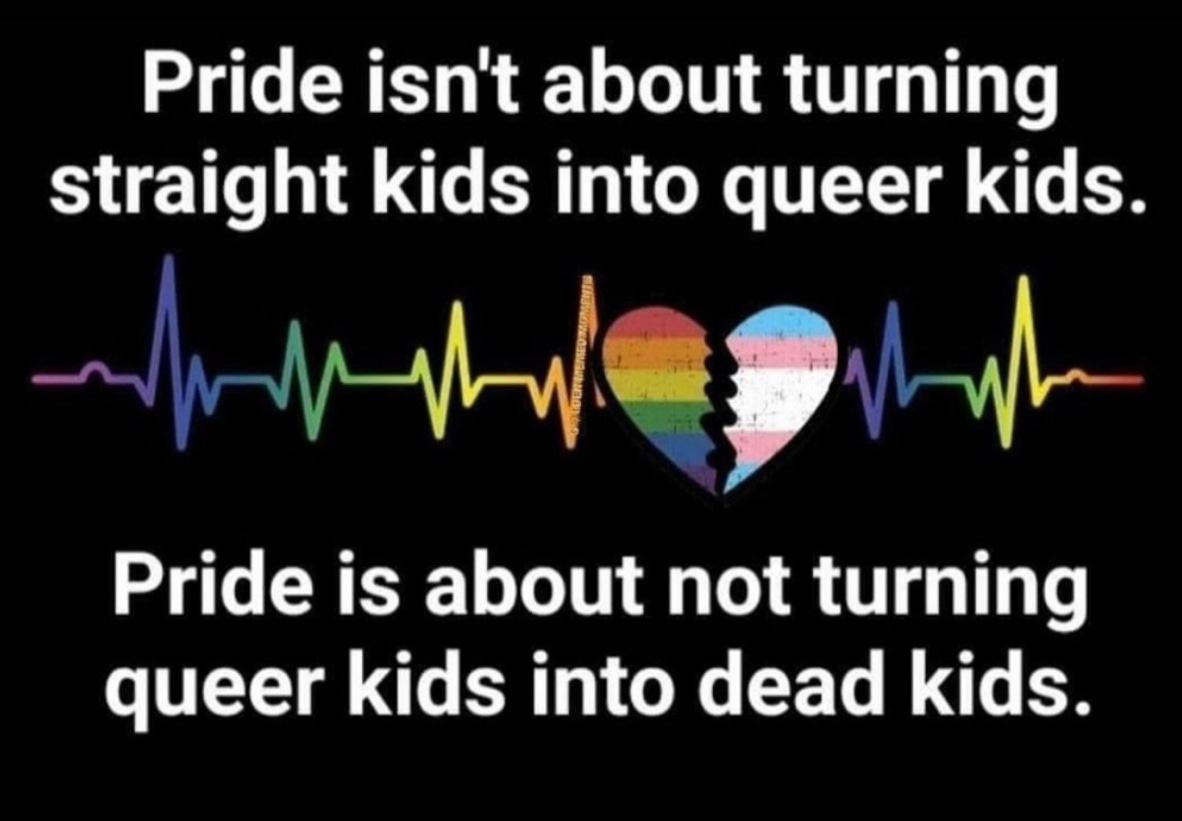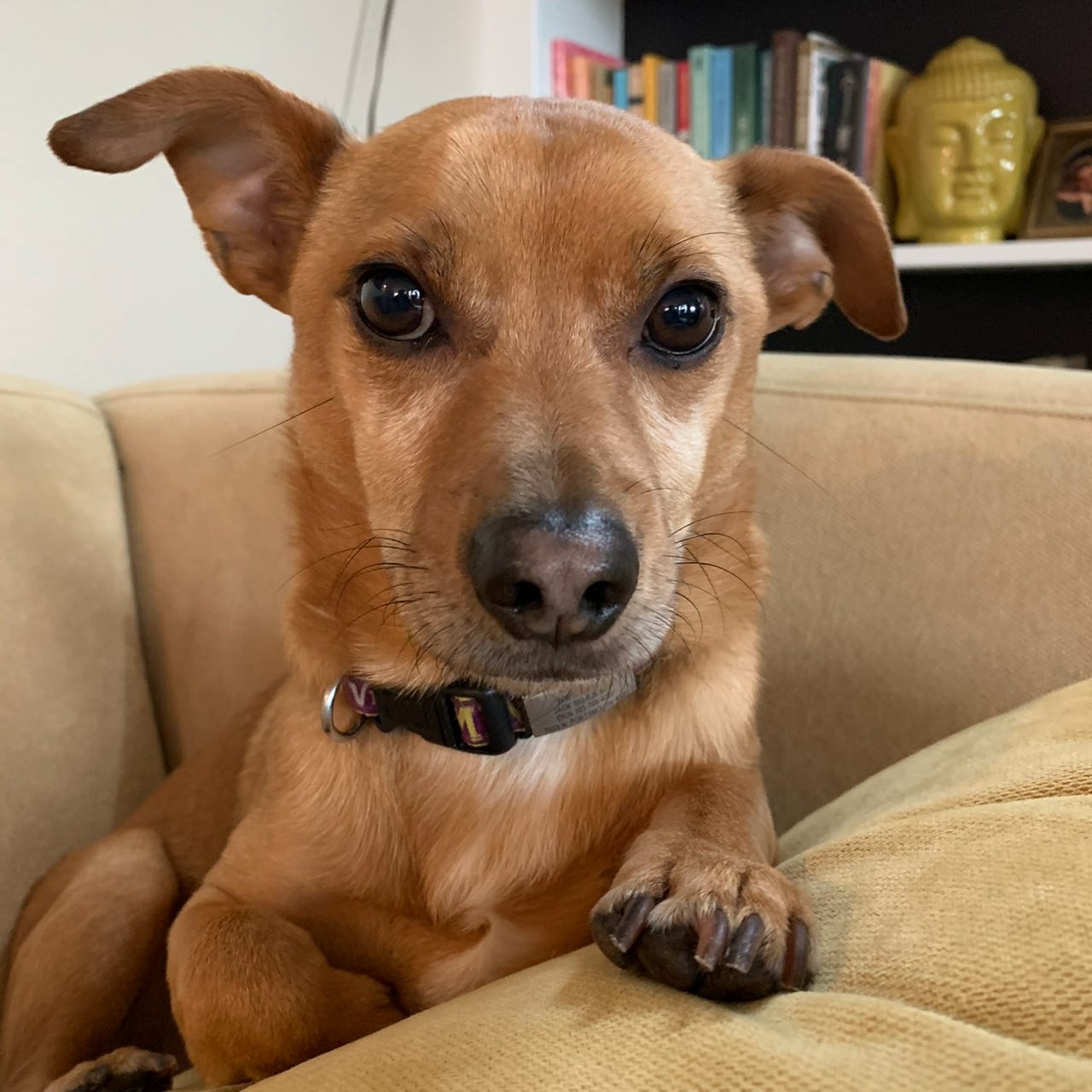Pride- It's As Much About Survival As It Is About Celebration
The sad and wonderful reality of America's LGBTQ community
I suppose there are a couple of ways to look at June being Pride Month:
It’s sad that it’s even necessary for a community to come together to celebrate its continued survival in the face of growing hatred and homophobia.
It’s beautiful that a community can come together to celebrate its continued survival in the face of growing hatred and survival…and to celebrate itself.
I’ve always considered Pride Month a “meh” event, as in “Meh, it doesn’t impact me, but if it makes people happy, then more power to them.” As the years have passed, I’ve begun to understand why June has become so crucial to the LGBTQ community. Even though I’m not LGBTQ, I support their sense of community and togetherness. After all, it’s not like the White Northern European heterosexual community I call home has faced much in the way of repression.
That’s unless you talk to those demanding a Straight Pride Month, of course, which is something too absurd for words…because isn’t EVERY month Straight Pride Month? In 2019, Erin and I were in Boston when a few White Conservative heterosexual nincompoops decided they had to have a Straight Pride parade. A gathering of fewer than 300 people shut down the entire downtown Boston downtown core on a beautiful Saturday morning. It seemed as if every Boston police officer was on duty, and officers from nearby jurisdictions were bussed in for support. Law enforcement seriously outnumbered the marchers by at least 2:1, perhaps more.
I’ve been to a few Pride parades, and I don’t recall anyone taking part ever showing up with combat helmets, baseball bats, and body armor…yet many at Boston’s Straight Pride parade showed up looking for a fight. Fortunately, the significant police presence kept the idiots well away from those on the other side. Everyone’s 1st Amendment rights (as well as their skulls) were left intact.
The LGBTQ community approaches their Pride parades with a bit more humor and a fair bit less malevolence. No weapons or body armor…although you will see some bike helmets now and again.
Being different in America is complicated. And I don’t mean being a Packers fan while the rest of your family are Vikings fans (I mean, that’s just AWFUL). No, I’m talking about coming out to your parents when you’re 15, and you know you can’t keep it bottled up inside anymore. What’s hard is facing the rejection that being LGBTQ can mean.
I’ve never experienced that, so I can’t begin to understand what that must be like. Outside of the stories I’ve heard from LGBTQ friends and acquaintances, I have no conception of how difficult growing up gay, lesbian, trans, or queer must be. I can be an ally, but I can’t begin to put myself in their shoes.
What I can do is be supportive where I’m able and push back against idiocy and bigotry when the need arises. Though I fail to understand what would drive someone to be unkind to another person simply because they live and/or love differently, I try to push back where and when I can.
I was raised in a time and place where only two genders existed, and relationships were between boys and girls. That was how things were, and I never thought to ask questions. When you grow up in a town of 941 people in northern Minnesota, things seem pretty simple.
Then I went off to college in St. Paul, MN, and learned that things weren’t so simple after all. And I began to understand that sexuality was more complex than I’d been led to believe. Though I was still quite naïve, I also began to learn that gender wasn’t as simple as I’d been taught.
Early in the first semester of my freshman year, I was working on a Sunday morning at a McDonald’s on University Avenue in St. Paul. The breakfast rush, such as it was, had tailed off when a well-dressed woman in her Sunday best approached the counter. I was in the middle of taking her order…when I noticed her Adam’s apple and 5:00 shadow.
As my 18-year-old synapses began to fry, I somehow managed to finish taking and filling her order. Once I finished that, I excused myself and ran to the back of the store as I hyperventilated and fought the urge to vomit. I was so discombobulated by what I’d encountered that I couldn’t continue working. I caught a bus back to my dorm and lay on my bed as the world spun.
That typically only happened when I’d had too much to drink, but I hadn’t touched a dropped the night before. I was so embarrassed that I quit my job soon after, though other factors contributed to that decision.
I promised myself I would never be caught off guard like that again, so I began educating myself. I was still pretty naïve, but at least I did what I could to be better informed. As my college years progressed, I attracted more gay friends and understood more about what life was like for them. Being that it was the early ‘80s, it wasn’t always easy.
During my junior year, I was a Resident Assistant in a dorm on campus. One of the residents on my floor was David, a slight, effeminate gay man who was also one of the nicest guys you could ever meet. One Saturday night, David went to a downtown Minneapolis club, where several men attacked and beat him.
When David returned to the dorm that night, he told me it wasn’t the first time he’d been attacked and that he often felt like a target. Forty-plus years later, I sometimes wonder what became of David.
There were thousands of Davids who wanted only to live authentically and honestly and were persecuted and beaten- or worse- for it. Most of us know the story of Matthew Shepard, a gay man brutally beaten by two men and left to die in rural Wyoming. Shepard’s murder is but one tale in a litany of savagery visited upon the LGBTQ community simply because of who they are. It continues today- and it needs to stop.
Sadly, after a time that felt like we as a culture might be making progress, it seems as if the hands of the clock are being turned back. Since The Former Guy oozed down the escalator at Trump Tower in Manhattan in 2015, haters, bigots, and homophobes have again been loosed upon the landscape. Hatred and oppression have again become fashionable…and who’s easier to oppress than the LGBTQ community? Well, I suspect the Black and AAPI communities might have something to say about that because generalized hatred and bigotry are once again in fashion.
So Pride is more than just a word or a concept. It’s an opportunity for an entire community to celebrate that they’re still here, still pulling in the same direction, and stronger than the hatred and bigotry they face daily. That seems like something worth celebrating.






